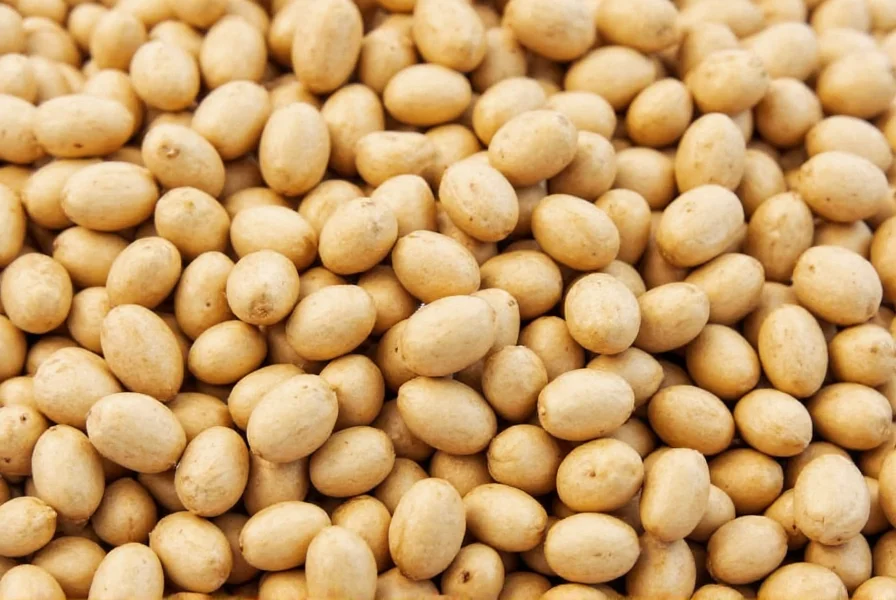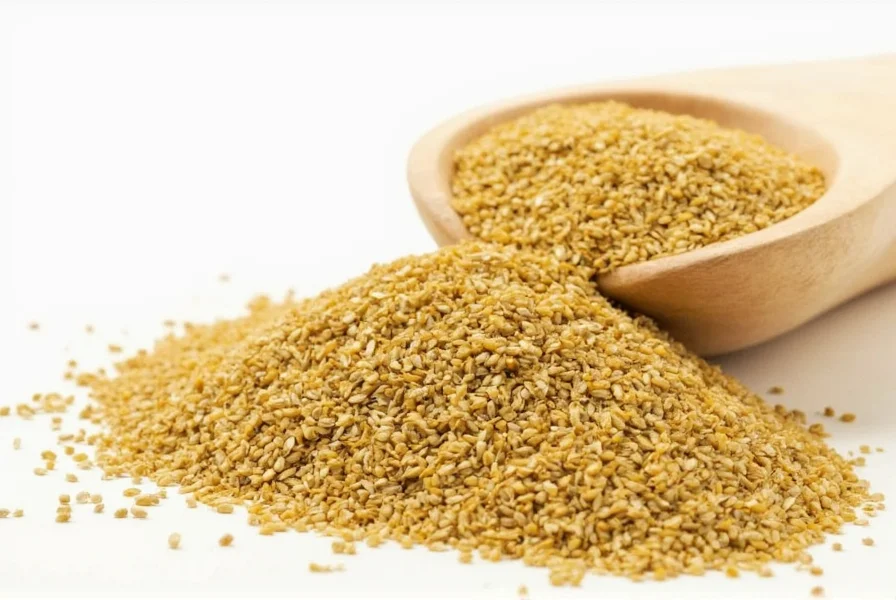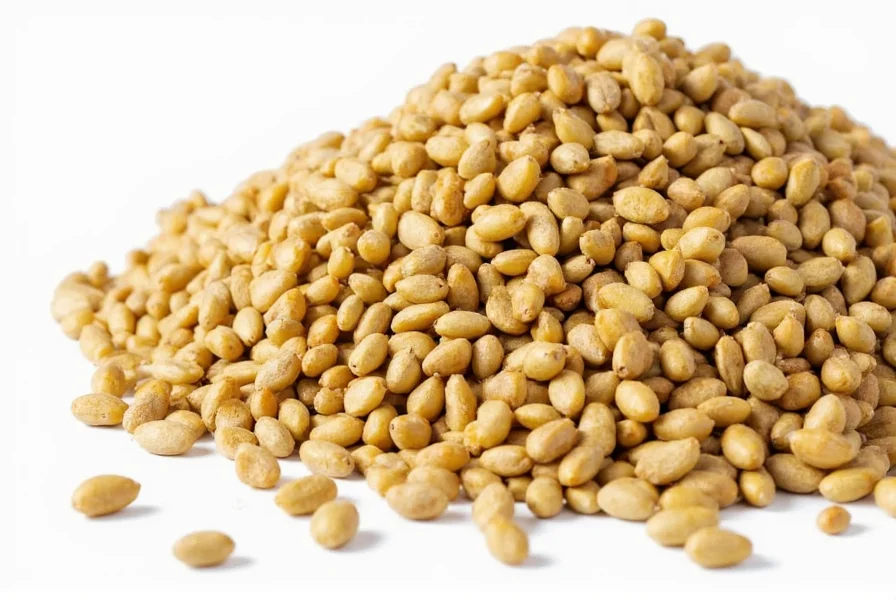Fenugreek (Trigonella foenum-graecum), a plant native to the Mediterranean and South Asia, has been used for centuries in traditional medicine systems. Modern research continues to validate many of its historical applications while revealing new potential health advantages. This comprehensive guide examines the scientifically supported benefits of fenugreek, separating evidence-based advantages from anecdotal claims.
What is Fenugreek?
Fenugreek is an annual plant belonging to the legume family, cultivated for both its seeds and leaves. The small, amber-colored seeds contain a rich profile of bioactive compounds including saponins, alkaloids, and soluble fiber. These components contribute to fenugreek's distinctive maple-like aroma and its diverse physiological effects. Available as whole seeds, powder, capsules, and tea, fenugreek seed extract has become the subject of increasing scientific interest for its potential health advantages.

Scientifically Supported Fenugreek Advantages
Blood Sugar Management
One of the most well-documented fenugreek advantages is its effect on blood glucose regulation. Multiple clinical trials have demonstrated that fenugreek seed powder can significantly reduce fasting blood sugar levels. A comprehensive 2021 meta-analysis published in Nutrition Reviews examined 15 randomized controlled trials involving 928 participants. The analysis concluded that fenugreek supplementation reduced fasting blood glucose by an average of 24.92 mg/dL compared to control groups.
The mechanism appears to involve multiple pathways: the high fiber content slows carbohydrate digestion, while compounds like 4-hydroxyisoleucine directly stimulate insulin secretion and improve insulin sensitivity. For individuals with type 2 diabetes, incorporating 5-10 grams of fenugreek seed powder daily may provide meaningful support for blood sugar control when combined with standard medical care.
Lactation Support for Nursing Mothers
Fenugreek advantages extend significantly to postpartum health, particularly for breastfeeding mothers. Numerous studies document its galactagogue effects—the ability to increase milk production. Research published in the Journal of Alternative and Complementary Medicine found that mothers taking fenugreek supplements experienced a 49% increase in milk volume within 72 hours compared to placebo groups.
The exact mechanism isn't fully understood, but fenugreek appears to stimulate sweat production, and since mammary glands are modified sweat glands, this may explain its lactation-enhancing properties. Most lactation consultants recommend 2-3 grams of fenugreek daily, with effects typically noticeable within 24-72 hours. However, women with peanut or chickpea allergies should exercise caution due to potential cross-reactivity.
Cholesterol and Heart Health
Regular consumption of fenugreek offers notable advantages for cardiovascular health. Clinical research indicates that fenugreek can reduce total cholesterol by 14-27% and LDL ("bad") cholesterol by 9-18% while increasing HDL ("good") cholesterol. The soluble fiber in fenugreek seeds binds to bile acids, prompting the liver to use cholesterol to produce more bile, thereby lowering circulating cholesterol levels.
A 2020 study in the Journal of Functional Foods followed participants consuming 18 grams of defatted fenugreek powder daily for 8 weeks. Results showed significant improvements in lipid profiles along with reduced markers of inflammation. These findings support fenugreek advantages for maintaining healthy cholesterol levels and reducing cardiovascular risk factors.
| Health Benefit | Effective Dosage | Time to Notice Effects | Scientific Support Level |
|---|---|---|---|
| Blood sugar regulation | 5-10g seed powder daily | 2-4 weeks | High (multiple RCTs) |
| Lactation support | 2-3g daily | 24-72 hours | Moderate-High |
| Cholesterol management | 10-18g daily | 4-8 weeks | Moderate |
| Testosterone support | 500mg extract daily | 4-12 weeks | Moderate |
Testosterone and Libido Enhancement
Emerging research suggests fenugreek advantages for male reproductive health. Several studies indicate that fenugreek extract may support healthy testosterone levels and improve sexual function. A double-blind, placebo-controlled trial published in Phytotherapy Research followed 60 men aged 25-55 taking 500mg of fenugreek extract daily for 12 weeks. Participants showed significant increases in total testosterone and free testosterone compared to the placebo group.
Additionally, the fenugreek group reported improvements in sexual desire, arousal, and overall satisfaction. While more research is needed, these findings suggest fenugreek may offer natural support for maintaining healthy testosterone levels and sexual function in men.
Anti-Inflammatory and Antioxidant Properties
Fenugreek advantages include potent anti-inflammatory effects attributed to its rich antioxidant profile. The seeds contain flavonoids, polyphenols, and other compounds that combat oxidative stress and reduce inflammation markers like C-reactive protein and interleukin-6. A 2019 study in Biomedicine & Pharmacotherapy demonstrated that fenugreek extract significantly reduced inflammation in animal models of arthritis.
These anti-inflammatory properties may explain traditional uses of fenugreek for soothing digestive issues, reducing menstrual pain, and accelerating wound healing. Incorporating fenugreek into your diet may provide systemic anti-inflammatory benefits that support overall health and wellness.
Traditional Uses vs. Scientific Evidence
While fenugreek has been used traditionally for numerous conditions, not all applications have strong scientific backing. Well-supported advantages include blood sugar management, lactation support, and cholesterol improvement. Less substantiated traditional uses include treating skin conditions, reducing fever, and enhancing hair growth—areas where more rigorous research is needed.
It's important to distinguish between traditional wisdom and evidence-based fenugreek advantages. Many historical applications may have merit but require further clinical validation. Always consult healthcare professionals before using fenugreek for medical purposes, especially if managing chronic conditions or taking medications.
How to Use Fenugreek for Maximum Benefits
To experience fenugreek advantages, proper usage is essential. The most common forms include:
- Seeds: Soak 1-2 teaspoons overnight and consume the water and softened seeds in the morning
- Powder: Mix 1-2 teaspoons with water, yogurt, or smoothies (start with smaller doses to assess tolerance)
- Tea: Steep 1-2 teaspoons of seeds in hot water for 10 minutes
- Capsules: Follow manufacturer's dosage recommendations (typically 500-600mg per capsule)
For blood sugar management, consume fenugreek before meals. Nursing mothers often take fenugreek three times daily. The characteristic maple-like flavor works well in curries, spice blends, and baked goods, making culinary incorporation both practical and enjoyable.

Safety and Potential Side Effects
Fenugreek advantages come with important safety considerations. While generally safe when consumed in food amounts, higher medicinal doses may cause:
- Digestive issues like diarrhea or gas (especially when starting)
- Maple syrup-like body odor (harmless but noticeable)
- Potential hypoglycemia when combined with diabetes medications
- Uterine contractions (avoid during pregnancy)
- Allergic reactions in those sensitive to legumes
The recommended maximum daily dose is 50 grams, though most therapeutic applications use significantly less. Individuals with diabetes should monitor blood sugar closely when starting fenugreek. Always consult your healthcare provider before beginning any new supplement regimen, particularly if you have medical conditions or take prescription medications.
Conclusion: Evidence-Based Fenugreek Advantages
Fenugreek offers several scientifically supported health advantages that validate many of its traditional uses. The most compelling evidence supports its role in blood sugar regulation, lactation enhancement, and cholesterol management. Emerging research suggests additional benefits for testosterone support and inflammation reduction.
When incorporating fenugreek into your wellness routine, focus on evidence-based applications, use appropriate dosages, and be mindful of potential interactions. While fenugreek advantages are significant, they work best as part of a comprehensive approach to health that includes proper nutrition, regular exercise, and appropriate medical care.
Frequently Asked Questions
How quickly does fenugreek work for increasing milk supply?
Most nursing mothers notice increased milk production within 24-72 hours of starting fenugreek supplementation at the recommended dose of 2-3 grams daily. Research shows measurable increases in milk volume typically occur within the first week of consistent use. However, individual responses vary, and some women may not experience significant effects.
Can fenugreek lower blood sugar too much?
Yes, fenugreek can potentially lower blood sugar excessively when combined with diabetes medications. Its blood sugar-lowering effects are well-documented, with studies showing reductions of up to 25% in fasting glucose. Individuals taking insulin or other glucose-lowering medications should monitor their blood sugar closely when using fenugreek and consult their healthcare provider about potential medication adjustments.
What's the best form of fenugreek for maximum health benefits?
The best form depends on your specific health goals. For blood sugar management, defatted fenugreek powder provides the highest fiber content. Standardized extracts (containing 50% fenuside) offer consistent dosing for testosterone support. Whole seeds provide the full spectrum of compounds when soaked or sprouted. Most research on lactation support uses seed powder or capsules. Culinary use of seeds in cooking provides milder benefits with excellent flavor.
Are there any medications that interact negatively with fenugreek?
Fenugreek may interact with diabetes medications (potentiating their effects and causing hypoglycemia), blood thinners (increasing bleeding risk due to coumarin content), and medications metabolized by the liver. It may also enhance the effects of sedative medications. Always consult your healthcare provider before combining fenugreek with prescription medications, especially if you have diabetes, are scheduled for surgery, or take anticoagulants.











 浙公网安备
33010002000092号
浙公网安备
33010002000092号 浙B2-20120091-4
浙B2-20120091-4